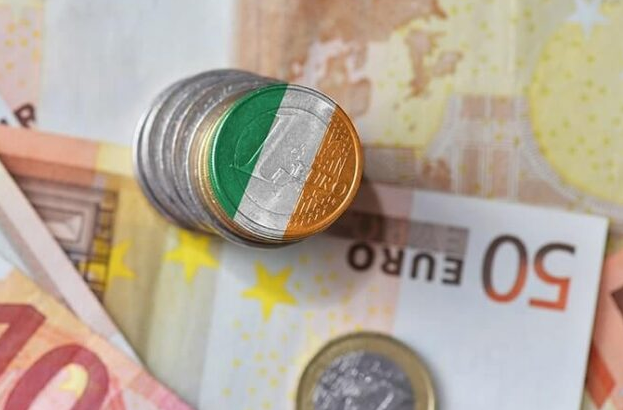Government
Reasons to be optimistic about the Irish economy in 2023

Ireland's economy is slowing, but there are a few key factors that will support people heading into another uncertain year.
All leading forecasters at home and abroad believe the extraordinary growth momentum of the Irish economy, briefly interrupted by the coronavirus lockdown, will come to an end in 2023, with consumer spending and investment already slowing in some sectors in the final months of last year. However, there were a few important factors that supported the economy last year, and here are five of them:
1. Record low unemployment
The Irish job market appears to have turned around mid-year, with overall employment flattening out, or falling a bit. When trying to interpret the overall data, it can be difficult to separate slowing hiring plans and layoffs in some industries from persistent labor shortages in others. But there is no doubt that the job market remains tight with the unemployment rate below 4.5%. This may slowly change in 2023, but is sure to happen, as layoffs at tech companies have begun and Irish domestic businesses have been hit by the cost of living crisis, but at least the starting point is good.
2. Large cash savings
Real consumer spending is falling because people don't have as much money as they used to. The real amount of consumption of goods and services has fallen for about six months, with more money spent on necessities such as energy and food and less consumption of other items. But post-coronavirus, many households still have large cash savings in the bank. Savings as a percentage of income exceeded 23% during 2020, falling to 21% in 2021 and 19% in the first half of 2022 - a share that has likely declined in recent months due to the impact of inflation. This compares with 11.5% before the pandemic.
Research by the Reserve Bank of Ireland shows that most of the savings come from higher-income households, while many lower-income households may have had to dip into their spare cash in recent months. Total household savings are now more than 170 billion euros, a third higher than pre-pandemic levels. Much of the extra saving in the time of the pandemic can be defined as excess. Many households have cash to fall back on, which should provide some support for consumer spending in 2023.
3. Pharmaceutical industry
There has been a lot of legitimate discussion about the impact of the tech downturn on Ireland, as profits in the sector are squeezed, there may be a threat to employment, and there may be implications for corporate taxation. This will be something to watch in 2023. So far, however, there have been no signs of similar pain in the broader pharmaceutical industry, which is a significant contributor to corporate tax revenue and includes life sciences and medtech companies, which employs about 80,000 people. While these companies are less visible, the likes of Pfizer and Merck are also considered among the big corporate taxpayers, as well as being significant employers. According to analysis, one of the reasons for the sharp increase in corporate income tax last year was the income tax on profits during the COVID-19 pandemic. Among the big job projects announced last year were Eli Lilly, Janssen Scientific and AstraZeneca, which together will provide more than 1,000 new jobs. With the tech sector under pressure, Ireland needs the industry to back it up.
4. The treasury is flush with cash
The amount of money that has flowed into the Treasury over the past few years has been extraordinary. Last year's landmark moment was a massive tax surge in November - the most tax-paying month of the year - which pushed the fiscal surplus to an unprecedented fiscal surplus of more than 12 billion euros in the first 11 months of last year. That figure will fall sharply in December - as departments ramp up cash spending towards the end of the year - but the Economic and Social Research Institute (ESRI) is still conservatively estimating an annual surplus of 3.5 billion euros last year and 65 billion next year. billion euros. This comes after Ireland set aside 2 billion euros last year and 4 billion euros this year for a new state reserve fund. So there is a lot of leeway in the short-term budget – for example, the Irish government will provide energy and cost of living support to households and businesses until later in the year if necessary. On the cash front, the Treasury is also in a strong position, with the National Finance Authority holding 27 billion euros in reserves and only planning to raise 7 billion euros this year. It has borrowed heavily at low interest rates in recent years, locking in borrowings at extremely low fixed rates.
5. Two positives about corporate taxation
There is no doubt that Ireland's reliance on corporate taxes is a source of risk to the country's economy, given the small number of companies paying large taxes. However, it's not all bad news, although falling profits in the tech sector (and more generally due to the global recession) will hit revenues this year. Big tech and pharmaceutical multinationals have been benefiting from tax breaks for large IP investments that moved here after 2015. Those investments will now start to dwindle - so while the total profits earned may fall, a greater percentage of those earned will face taxes. In addition, from 2024, a new tax of 15% will be introduced on the taxation of large companies, which, based on 2022 figures, will generate at least 2 billion euros in additional revenue. Implementing another part of the OECD agreement - the redistribution of where profits are taxed - would cost Ireland revenue, although it is unclear if or when that will happen.
Overall, Ireland has moved from a position where many factors worked in its favour, to a more complicated situation. But going into 2023, there are still some positives that should bring some resilience to the economy. Much will still depend on the performance of the international economy, as many countries face the threat of recession, as well as geopolitical factors, notably those related to the war in Ukraine. Some moderation in wholesale energy prices in recent weeks is good news, although they remain well above levels that people have been used to for years. This year seems to be another year of great uncertainty.

